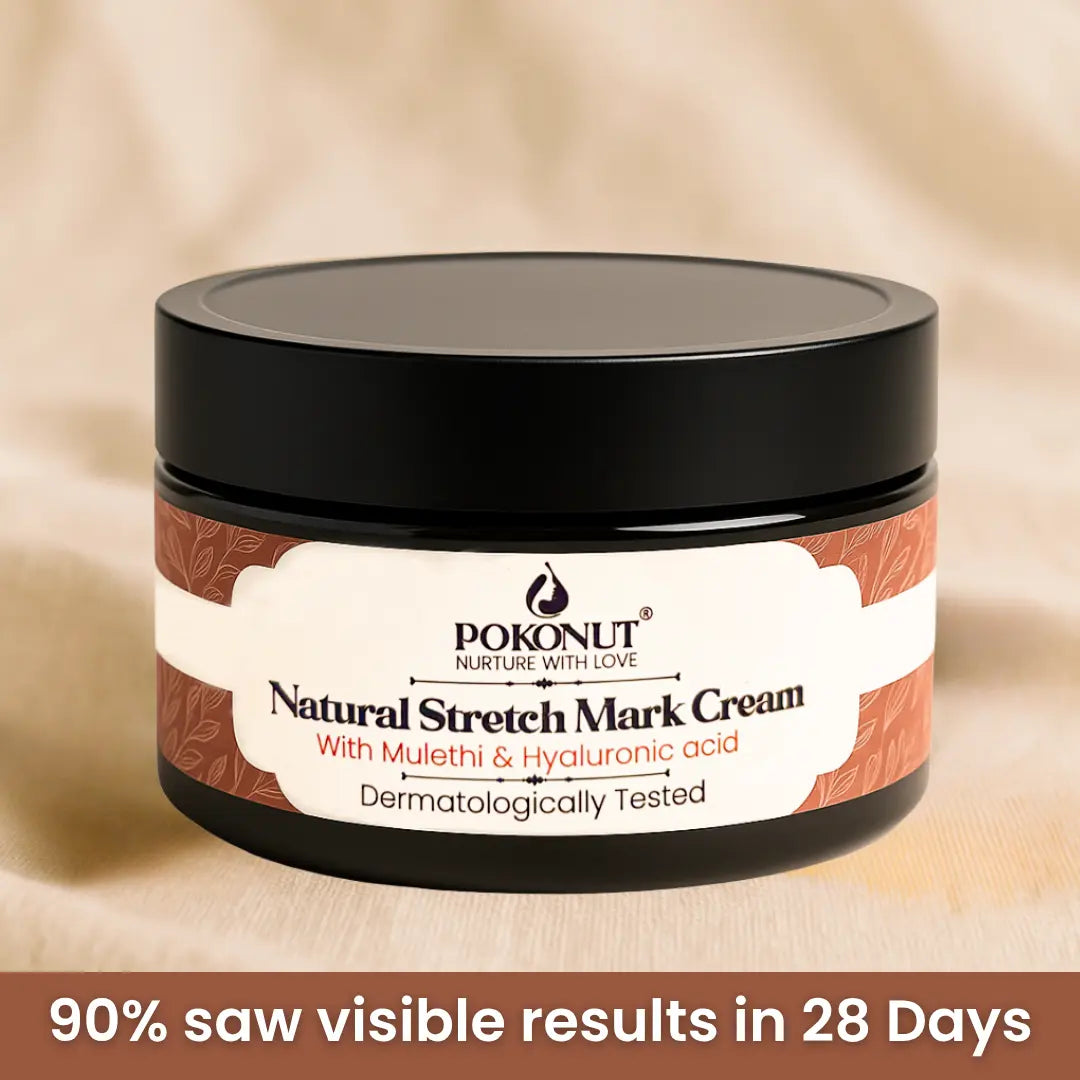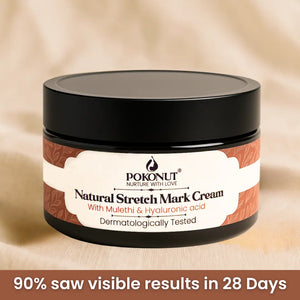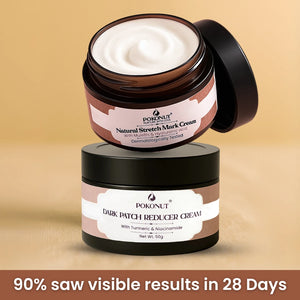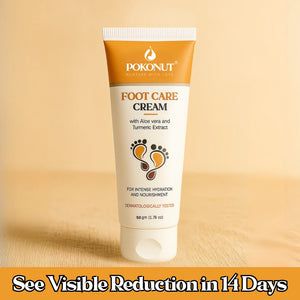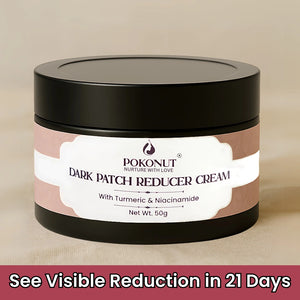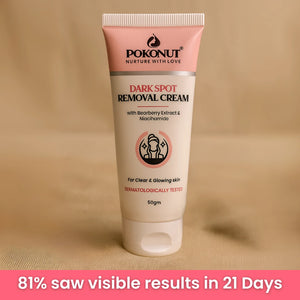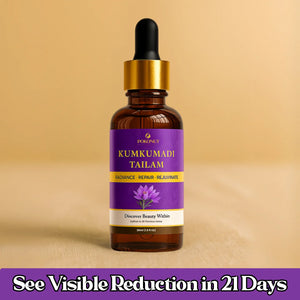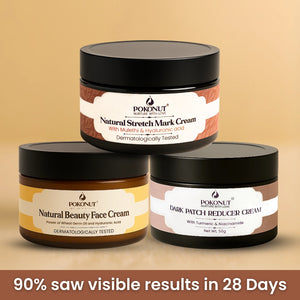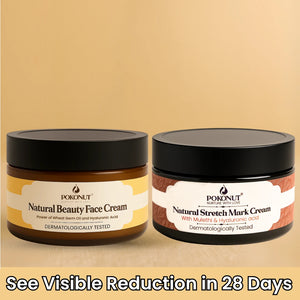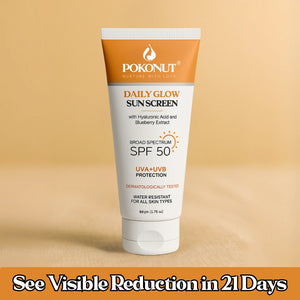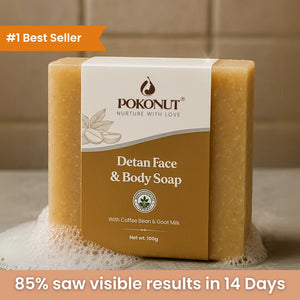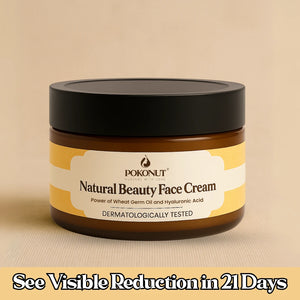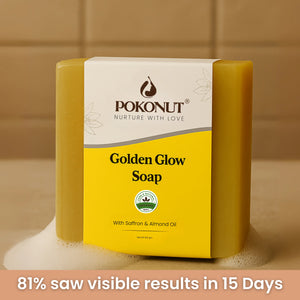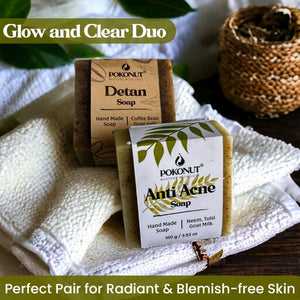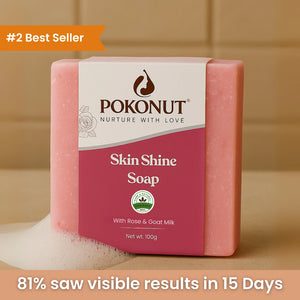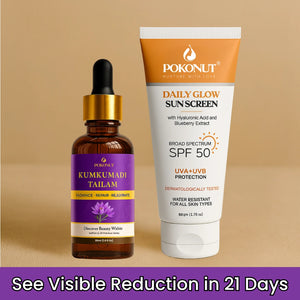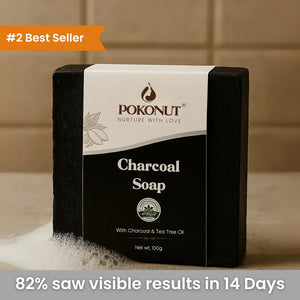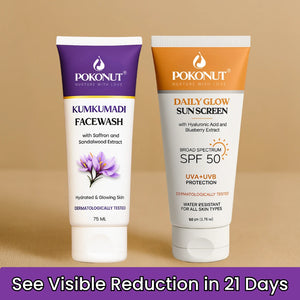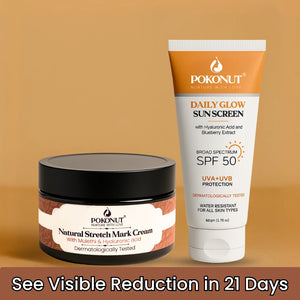Is Your Belly Stretch Mark Cream Doing Its Job?

Medically Reviewed By:
Dr. Neeraj Bansal, BAMS
Written by Our Editorial Team
Pregnancy brings many physical changes, and one of the most visible signs is stretch marks. For many expectant mothers, applying a belly stretch mark cream becomes a daily ritual. But how do you know if the product you’re using is actually working?
The skincare industry is flooded with creams that promise smooth, mark-free skin. However, most fail to meet the specific needs of pregnant or postpartum bodies. If a product isn’t built for your body’s current phase, it might not be doing much at all.
Why Most Creams Fall Short
Stretch marks form when skin stretches faster than it can adapt. During pregnancy, hormonal changes make skin more prone to tearing in the deeper layers. This is why prevention and early treatment matter—and why an ordinary lotion won't do the job.
Common reasons a belly stretch mark cream may not be working:
-
Contains synthetic or inactive ingredients
-
Not applied consistently
-
Lacks skin-repairing agents like vitamins and plant oils
-
Not designed for pregnancy-specific skin sensitivities
-
Poor absorption into the deeper layers of skin
What to Expect from a High-Quality Belly Stretch Mark Cream
A well-formulated belly stretch mark cream does more than moisturize. It actively helps strengthen the skin’s barrier, reduce inflammation, and support elasticity—all without harmful additives.
Here’s what an effective formula should deliver:
|
Essential Benefit |
How It Helps |
|
Deep hydration |
Prevents dryness and skin tearing |
|
Boosted collagen production |
Improves elasticity and resilience |
|
Reduced itching and irritation |
Soothes skin stretched by rapid growth |
|
Natural, non-toxic ingredients |
Ensures safety for mom and baby |
|
Quick absorption |
Delivers nutrients deep into the dermis |
Products like the Pokonut belly stretch mark cream are designed with this exact purpose in mind—created to care for growing bellies using plant-based, pregnancy-safe ingredients.
How to Tell If Your Cream Is Actually Working
It’s not just about what’s inside the tube—it’s how the product performs. Here are a few signs that your pregnancy belly cream is doing its job:
1. Skin feels consistently moisturized
If your skin still feels dry or itchy after application, the formula may not be penetrating deeply enough.
2. You’re not developing new marks rapidly
Stretch marks are partly genetic, but if the cream is working, the rate of new marks should slow down.
3. Reduced redness and inflammation
Fresh stretch marks often appear red or purple. A good cream helps fade that color over time.
4. Comfort during application
Burning, stinging, or stickiness are red flags. A proper cream should soothe, not irritate.
Ingredients That Actually Make a Difference
When evaluating a natural cream for stretch marks, these ingredients should be at the top of the label:
-
Shea Butter – Rich in fatty acids and vitamins for deep nourishment
-
Coconut Oil – Antibacterial and deeply hydrating
-
Aloe Vera – Calms inflammation and supports healing
-
Vitamin E – Protects and repairs damaged skin
-
Jojoba Oil – Balances and restores the skin’s natural barrier
Pokonut’s belly stretch mark cream is made with these clean, non-toxic ingredients—no parabens, no synthetic fragrances, and no unnecessary fillers.
Common Mistakes That Reduce Effectiveness
Even the best maternity skin care products can fall short if not used correctly. To get the most out of any stretch mark lotion:
-
Apply twice a day (morning and night)
-
Massage thoroughly in circular motions to boost absorption
-
Start early, ideally in the first trimester
-
Continue post-delivery to support recovery
Skipping days or applying too little won’t give the skin the support it needs during rapid stretching.
More Than Skin Deep: Pregnancy Wellness Tip
Supporting the skin from the inside out also matters. Staying hydrated, eating a nutrient-rich diet, and getting enough antioxidants can improve skin strength.
Wondering about healthy fruit choices? Here's a helpful read on grapes during pregnancy—including what benefits they offer and how much is safe.
Final Thoughts
A dedicated belly stretch mark cream is more than just a cosmetic choice—it's a practical step in caring for the skin during one of the most physically demanding times in life. The right cream should deliver real benefits: hydration, elasticity, and comfort, without compromising on safety.
Choosing a clean, well-formulated product like the Pokonut Natural Stretch Mark Cream means choosing peace of mind. Designed for pregnancy and postpartum skin, it supports the skin through every stage of the journey.
FAQs:
1. How long does it take for a belly stretch mark cream to show results?
Answer: Results vary by skin type and genetics. With consistent use (twice daily), improvements in texture and hydration can be noticed within a few weeks. Deeper fading of stretch marks may take several months.
2. Can stretch marks be completely prevented with cream?
Answer: While no product can fully prevent stretch marks, using a high-quality pregnancy belly cream can significantly reduce their appearance and support the skin's elasticity.
3. Is it safe to use belly stretch mark cream while breastfeeding?
Answer: Most creams made specifically for pregnancy and postpartum, like Pokonut's, are safe to use while breastfeeding. Always check that the product is free from synthetic fragrances and harmful chemicals.
4. Can I use belly cream on other areas prone to stretch marks?
Answer: Absolutely. The same cream can be applied to hips, thighs, breasts, and lower back—any area where the skin is expanding during pregnancy.
5. What should I avoid in a belly stretch mark cream?
Answer: Avoid ingredients like retinoids, parabens, synthetic fragrance, and alcohol. These can irritate sensitive skin or pose potential risks during pregnancy.
About Doctor :

